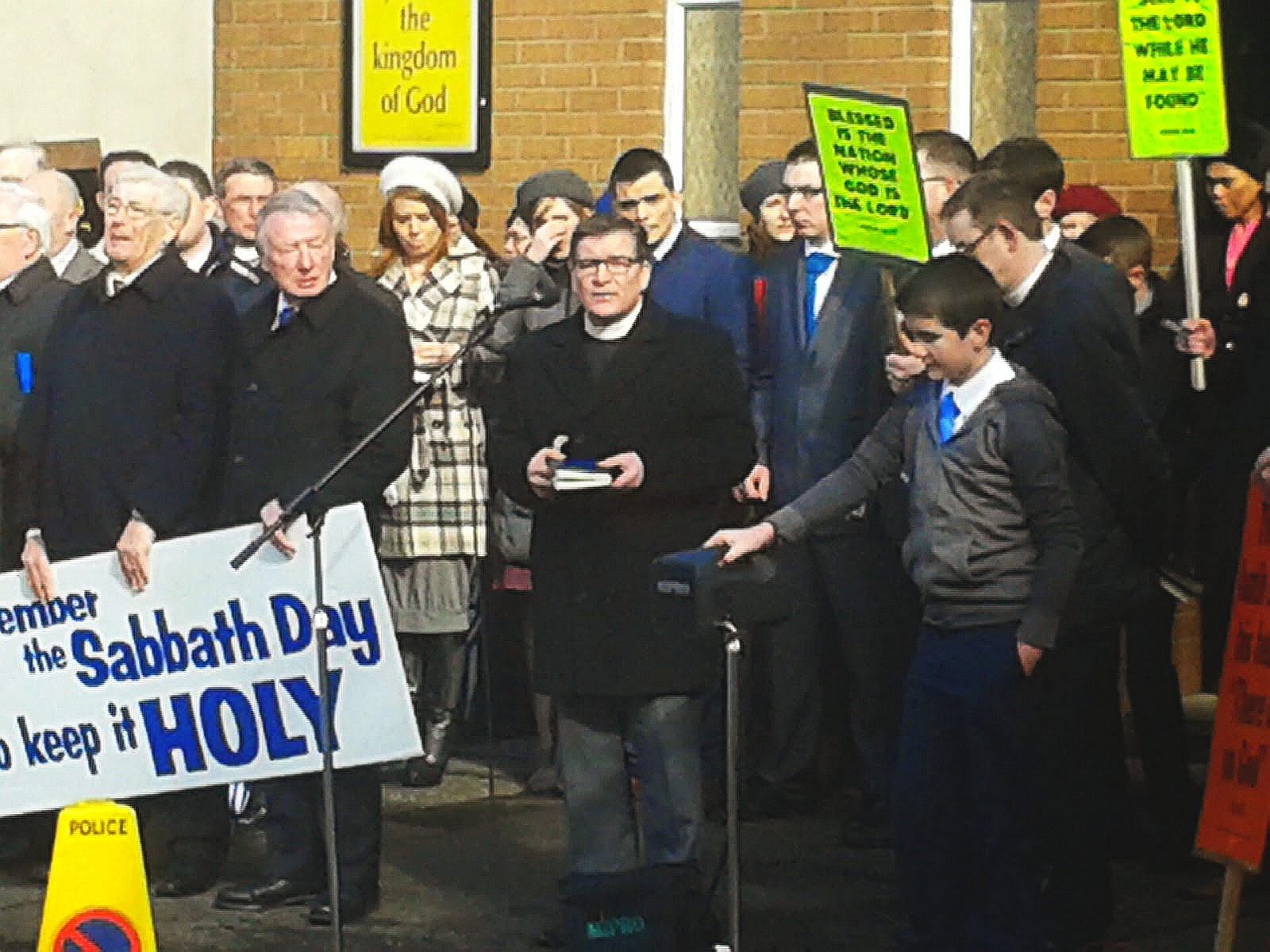
I wish to make a comment on the fact that our Presbytery Officers have decided that there will be no protest at the above ungodly ecumenical gathering, which has ostentatiously expropriated the centenary of the stand taken by our Protestant forefathers against the political sell-out of our heritage attempted by the British government, and that into the hands of a Roman Catholic dominated ‘United “Ireland’.
All that this ecumenical ‘celebration’ entails would have been anathema to our forbears of 1912 and 1921.
In 1951, the Free Presbyterian Church was brought into existence by the Lord in order to PROTEST against the wickedness of the ecumenical movement. Most certainly for the first 50+ years it was faithful and fervent in that calling. However, its opposition to the modernism and the liberalism and the pro-popish direction taken by the Church of Ireland, Presbyterian and Methodist churches in Ireland since the late 1940s, has most decidedly waned over the last couple of decades. (see Questions for the Free Presbyterian Church)
Much has been made of the security measures that undoubtedly will be in place for this ecumenical service and the difficulties they would present to any who wish to get into Armagh and anywhere near the cathedral to protest. (more…)

 Of late, I have been given to understand that there are those ministers in the Free Presbyterian Church who would seek to impress upon younger ministers and students that such is the case.
Of late, I have been given to understand that there are those ministers in the Free Presbyterian Church who would seek to impress upon younger ministers and students that such is the case.